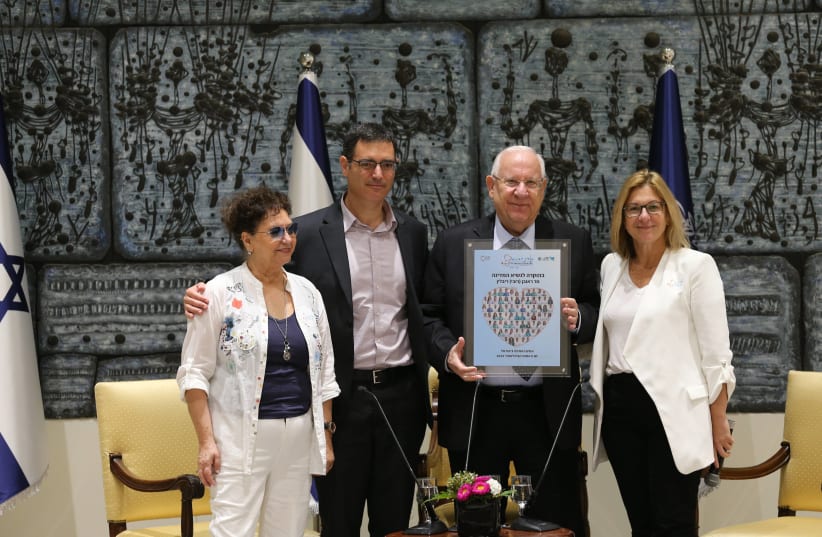In the aftermath of International Nurses Day, which is celebrated on May 12 around the world, President Reuven Rivlin on Wednesday hosted Israeli nurses and officials of the Health Ministry.
May 12 was the birthday in 1820 of Florence Nightingale, an Italian-born British nurse who was the founder of modern-day nursing. While in charge of nursing wounded British soldiers in Turkey during the Crimean War, she was appalled by the lack of sanitary conditions, and together with nurses in her charge, was instrumental in bringing about change.
She earned the sobriquet of “Lady with the Lamp” because she spent a lot of time in the wards personally caring for the wounded. At night, she would go through the wards, carrying a small lamp so that she could see each of the soldiers on whose progress she was checking.
Because nurses were not properly trained in her time, she opened the Nightingale School of Nursing in London’s St. Thomas Hospital in 1860. She also trained midwives. In 1907, she was the first woman to be awarded Britain’s Order of Merit.
A large group of nurses, headed by Nurses’ Union chairwoman Ilana Cohen and Health Ministry director Moshe Bar Siman Tov, came to the Presidents’ Residence not only in honor of the occasion but to wish good health to him and to his wife, Nechama, who is recuperating following a lung transplant – and to tell Rivlin that they love him and that the sentiment comes straight from the heart.
They refrained from talking about how nurses in Israel are overworked, underpaid and frequently the victims of physical and verbal abuse, although Rivlin hinted at it when he said that it was not easy to be a nurse in Israel. “This profession frequently places you in physically difficult, challenging and sensitive situations,” he said.
For his part, Rivlin voiced his appreciation for the outstanding nursing care that his wife has received, saying that he and his family have had the opportunity to observe this in the time they spend at her bedside. He attributed the improvement in his wife’s condition to the fact that nurses are constantly around her.
Rivlin told the assembled nurses that what they do is holy work, and declared that public health should become a national priority.
He also emphasized that the nursing profession is an excellent example of coexistence, with Jewish and Arab nurses working alongside each other and together for the welfare of their patients.
Hospitals are also examples of coexistence, he said, noting that Jewish and Arab patients are often together in one room or ward, regardless of ethnic, religious or socioeconomic differences.
Cohen stated that there is no substitute for human capital.
Israel’s nurses, both male and female, are the most important resource in maintaining the strength and stability of the health system, she said.
